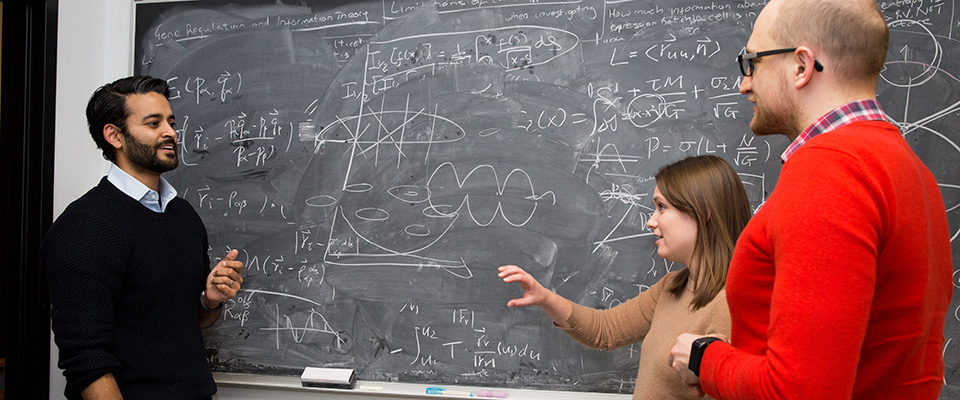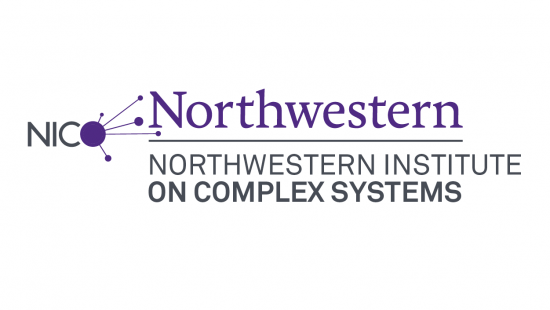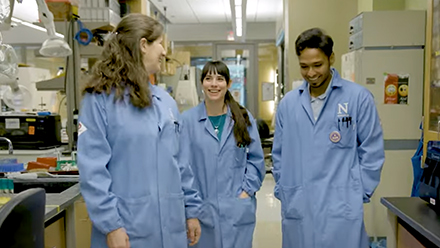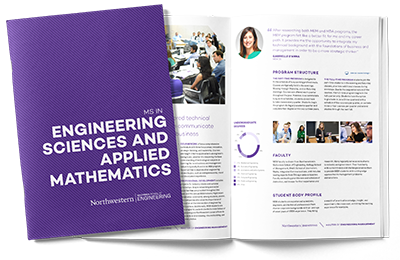Without a thesis
Students complete 12 courses comprised of core courses and electives in numerical methods, asymptotic methods, analysis methods, and modeling. Special topics are also offered each year.

The Department of Engineering Sciences and Applied Mathematics (ESAM) at Northwestern University is highly interdisciplinary and focused on applications. Our faculty and students connect with engineers and scientists across departments, schools, and institutions, applying mathematics to challenging problems presented by the world around us in engineering and the physical, biological, and social sciences. In these applications we develop new mathematical methods that anticipate future challenges.
Our master’s program offers advanced courses in applied mathematics that prepare students for a career as a professional mathematician in, for example, industrial environments where specialized PhD training is not required.
We seek applicants with an undergraduate degree in mathematics, the physical sciences, or engineering. Prospective students should have completed coursework in linear algebra, advanced calculus, and differential equations.
The basics at-a-glance
The full-time program’s coursework focuses on both analytical and computational methods in applied mathematics. Its computational sequence of courses will give students the necessary training to move into positions in industry requiring advanced knowledge of computational methods for partial differential methods, stochastic differential equations, and modern methods in parallel computing.
Students typically complete the program in one academic year.
Students complete 12 courses comprised of core courses and electives in numerical methods, asymptotic methods, analysis methods, and modeling. Special topics are also offered each year.
Students choosing the thesis option may replace two courses with research credit earned by completing a thesis project.
For applied mathematicians, mathematical problems and solutions do not remain abstract, but connect with the real world providing understanding and rigorous answers to pressing questions. Often in collaboration with engineers and scientists, faculty and students develop mathematical models and methods to analyze, validate, and predict new phenomena.







Our unique environment provides academic, career, and social benefits

Our position within the engineering school is unique among applied math departments and drives connections across disciplines. We collaborate with most other engineering departments as well as Northwestern’s Weinberg College of Arts and Sciences and the Feinberg School of Medicine. Students and faculty work directly with engineers and scientists to tackle real-world applications at the cutting edge of science and engineering.

Our curriculum retains classical mathematical approaches while incorporating data-driven and computational techniques. In this way, we are training scientists to solve the biggest problems in the mathematics of life, physical, and social science.

We are located along the shores of Lake Michigan, only 17 miles from downtown Chicago. Our students benefit from a spectrum of suburban or urban home environments; extensive internship opportunities, cultural and entertainment experiences; and a diverse population. Beyond the classroom, students have opportunities to connect through our many student organizations.
Northwestern Engineering’s Department of Engineering Sciences and Applied Mathematics is using its uncommon position within an engineering school to seek out applied math applications in the real world, driving connections with interdisciplinary departments and groups at the University and beyond.
Central to the department's research is the development of data-driven and principle-based mathematical models to harness the vast and complex data available to us today.
Where do we go from here?
While they are at Northwestern, our students benefit from professional development opportunities that prepare them for the next step in their careers. They serve as teaching assistants, present research results at national and international conferences where they can build a global network of contacts. And they have access to internships and extensive career placement resources via both Northwestern Engineering Career Development and Northwestern Career Advancement.
Where our alumni work in industry









Request a customized program guide about the master of science in engineering sciences and applied mathematics.